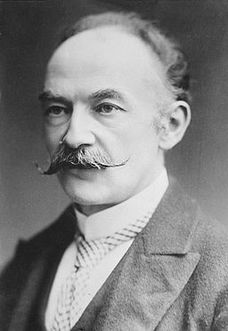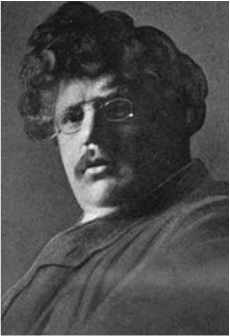Compassion
In celebration of the centenary of the Royal Society for the Prevention of Cruelty to Animals
I.
Backward among the dusky years
A lonesome lamp is seen arise,
Lit by a few fain pioneers
Before incredulous eyes.
We read the legend that it lights:
“Why should throughout this land of historied rights
Mild creatures, despot-doomed, bewildered, plead
Their often hunger, thirst, pangs, prisonment,
In deep dumb gaze more eloquent
Than tongues of widest heed?”
II.
What was faint-written, read in a breath
In that year—ten-times-ten away—
A larger clearer conscience saith
More sturdily to-day.
But still those innocents are thralls
To throbless hearts, near, far, that hear no calls
Of honour towards their too-dependent frail;
And from Columbia Cape to Ind we see
How helplessness breeds tyranny
In power above assail.
III.
Cries still are heard in secret nooks,
Till hushed with gag or slit or thud;
And hideous dens whereon none looks
Are blotched with needless blood.
But here, in battlings, patient, slow,
Much has been won—more, maybe, than we know—
And on we labour stressful. “Ailinon!”
A mighty voice calls: “But may the good prevail!”
And “Blessed are the merciful!”
Calls yet a mightier one.
Hardy was ahead of his age; and I made use of his statement in my book The Soul’s Refinement partly to pay tribute to that. Today, more than ever, it dawns on me that he was ahead of our time also: humanity’s treatment of animals, in some quarters has improved, but largely has regressed, for example in modern agribusiness’s reliance on Concentrated Animal Feeding Operations (CAFOs).
What prompted my reminiscence about Hardy was a poem that a friend posted on Facebook to celebrate Palm Sunday two days ago, something by G.K. Chesterton:
The Donkey
When fishes flew and forests walked,
And figs grew upon thorn,
Some moment when the moon was blood,
Then surely I was born.
With monstrous head and sickening cry,
And ears like errant wings,
The devil’s walking parody
Of all four-footed things.
The tattered outlaw of the earth,
Of ancient, crooked will;
Starve, scourge, deride me: I am dumb,
I keep my secret still.
Fools! For I also had my hour;
One far fierce hour and sweet:
There was a shout about my ears,
And palms before my feet.
It has been a long while since I studied Hardy, so cannot pronounce about his religious beliefs: a quick look online reports him to have been an atheist. If so, better the atheism of Hardy than the Christianity of Chesterton.
It was, in fact, under the weight of this perception of the weakness of Christian thought that I wrote a poem about Prince Sattva and his encounter with the lions, a famous story in Buddhism. Buddhist lore includes—or to use Hardy’s terminology, has been enlarged to include the area of—the whole animal kingdom, and such stories abound. This casts no aspersion on the Jesus whose teachings inform the Christian Gospel—but the narrowness of focus which has hallmarked so many of his followers, especially in America today, must be lamented. More importantly, teaching must be done so as to widen the “application” of that message in congruence with Hardy’s universal paradigm.
According to my friend, the animal which bore Jesus (per citation of Zechariah 9:9) was not a full-grown adult, but actually “a colt, the foal of a donkey,” which casts its services in a more problematic light. (He reminded that in “the Middle Ages, and later, yanking the hair from the backs of donkeys” was considered a “‘cure’ for sundry maladies, including measles and whooping cough.”)
Questions of animal suffering aside—I was never one to sit all the way through Bresson’s Au Hasard Balthazar —the eccentric notion that an animal takes pride and redemption in being used for human purposes, no matter how engrained in the human psyche and facilitated by traditions of husbandry, cannot but be distortive. Condescension, which permeates all of Chesterton’s writings, must be recognized. The prevalence of his kind of thinking does not make it right.
Hardy would be appalled by slaughterhouse conditions today; but at least gratified that his words have been used by present-day advocates in trying to ease the suffering of our fellow mortals.
Without compassion, there is no use for poetry.



 RSS Feed
RSS Feed